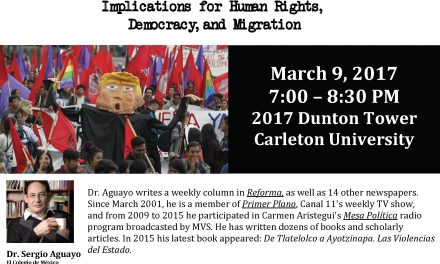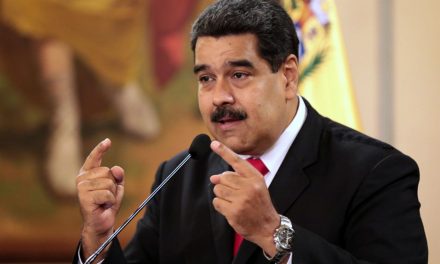Venezuela: Target of Economic Warfare
By Joyce Nelson
WatershedSentinel.ca
Most people are horrified to watch Venezuela seemingly on the verge of outright civil war, or worse, an invasion by U.S. military forces. The death toll continues to rise in the violent street protests led by the right-wing opposition, following the July 30 vote on a Constituent Assembly to rewrite the constitution. U.S. President Donald Trump had threatened to take further, unspecified “economic actions” if Venezuelan President Nicolas Maduro went ahead with the vote, and Trump added that the U.S. would not stand idly by “as Venezuela crumbles.”

Economic Warfare – Image: Jared Rodriguez / t r u t h o u t; Adapted: Pfc. Andrya Hill / U.S. Army, Lomo-Cam
The Canadian Peace Congress issued a statement (July 29) that said, “If the attempt at internal counter-revolution fails, plans are being put in place for direct military intervention by the United States, possibly under the cover of the Organization of American States (OAS).”
Maduro had hoped that the July 30 vote would help to bring dialogue and peace to the country, which has been wracked by violence for more than four months.
According to sociologist Maria Paez Victor, the opposition had been demanding that the Maduro government negotiate with them, so early in 2017 “a Peace and Dialogue Table was set up, facilitated by 2 former presidents of Latin America and one of Spain. They then refused to negotiate, demanding the presence of the Vatican. When the Nuncio arrived, they still refused to dialogue. Pope Francis himself stated the dialogue failed because the opposition would not participate. President Maduro then concluded that if the opposition would not negotiate with the government, they would have to negotiate directly with the people – and called for a Constitutional Assembly to amend the constitution.”
Maduro’s call triggered months of violence in the streets, with more than 100 people killed in the lead-up to the July 30 vote.
In advance of that vote, Raul Burbano, Program Director of the Canadian NGO Common Frontiers, told me by email, “The people of Venezuela will elect 540 constituents who will decide what changes to make to the constitution. These constituents will be elected via sector – i.e., workers, students, peasants, business folks, etc. and also territorially,” thereby broadening the members beyond the elite politicians. Burbano added that the Maduro government would likely want to see constitutional changes such as making the state “less bureaucratic” and “enshrining in the constitution the social programs” created over the past years.
Venezuelan electoral authorities announced a voter turnout of 41.53 per cent, or more than 8 million people on July 30. The opposition claimed fewer than half that figure turned out, and say that the Maduro government is becoming “dictatorial” and “consolidating power” through the Constituent Assembly.





